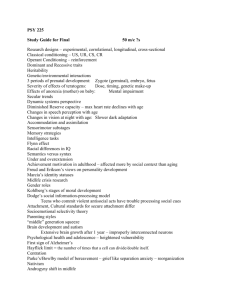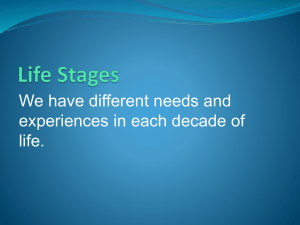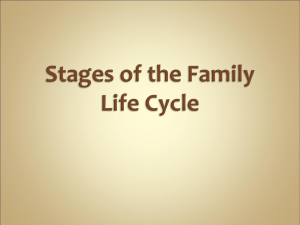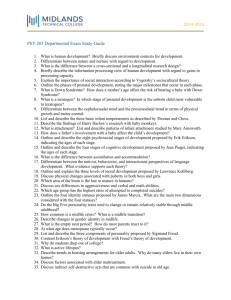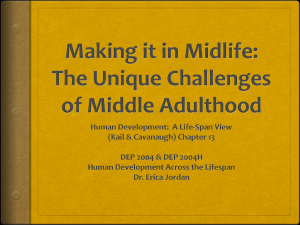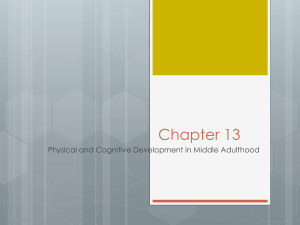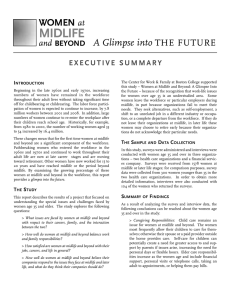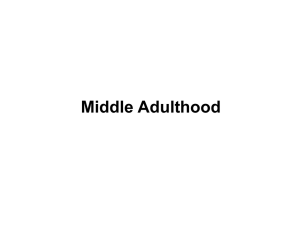How practitioners can better meet the needs of midlife
advertisement
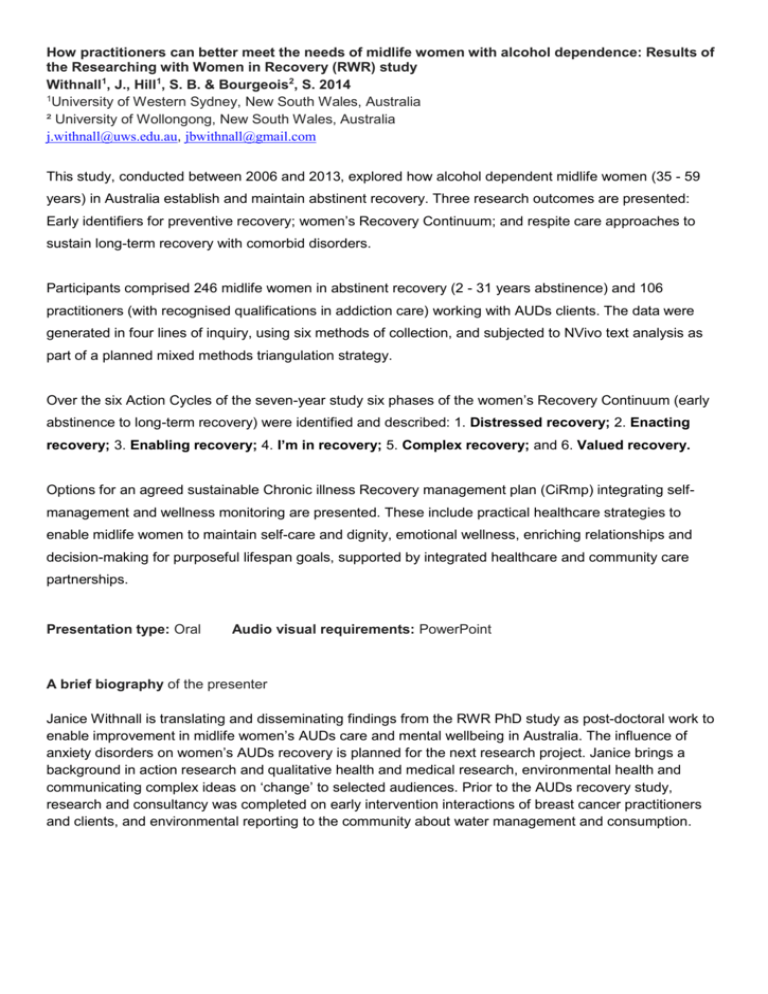
How practitioners can better meet the needs of midlife women with alcohol dependence: Results of the Researching with Women in Recovery (RWR) study Withnall1, J., Hill1, S. B. & Bourgeois2, S. 2014 1 University of Western Sydney, New South Wales, Australia ² University of Wollongong, New South Wales, Australia j.withnall@uws.edu.au, jbwithnall@gmail.com This study, conducted between 2006 and 2013, explored how alcohol dependent midlife women (35 - 59 years) in Australia establish and maintain abstinent recovery. Three research outcomes are presented: Early identifiers for preventive recovery; women’s Recovery Continuum; and respite care approaches to sustain long-term recovery with comorbid disorders. Participants comprised 246 midlife women in abstinent recovery (2 - 31 years abstinence) and 106 practitioners (with recognised qualifications in addiction care) working with AUDs clients. The data were generated in four lines of inquiry, using six methods of collection, and subjected to NVivo text analysis as part of a planned mixed methods triangulation strategy. Over the six Action Cycles of the seven-year study six phases of the women’s Recovery Continuum (early abstinence to long-term recovery) were identified and described: 1. Distressed recovery; 2. Enacting recovery; 3. Enabling recovery; 4. I’m in recovery; 5. Complex recovery; and 6. Valued recovery. Options for an agreed sustainable Chronic illness Recovery management plan (CiRmp) integrating selfmanagement and wellness monitoring are presented. These include practical healthcare strategies to enable midlife women to maintain self-care and dignity, emotional wellness, enriching relationships and decision-making for purposeful lifespan goals, supported by integrated healthcare and community care partnerships. Presentation type: Oral Audio visual requirements: PowerPoint A brief biography of the presenter Janice Withnall is translating and disseminating findings from the RWR PhD study as post-doctoral work to enable improvement in midlife women’s AUDs care and mental wellbeing in Australia. The influence of anxiety disorders on women’s AUDs recovery is planned for the next research project. Janice brings a background in action research and qualitative health and medical research, environmental health and communicating complex ideas on ‘change’ to selected audiences. Prior to the AUDs recovery study, research and consultancy was completed on early intervention interactions of breast cancer practitioners and clients, and environmental reporting to the community about water management and consumption.
